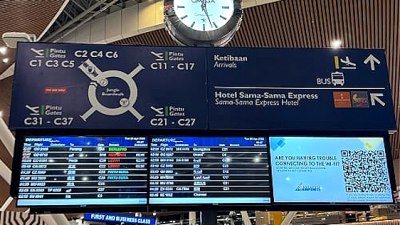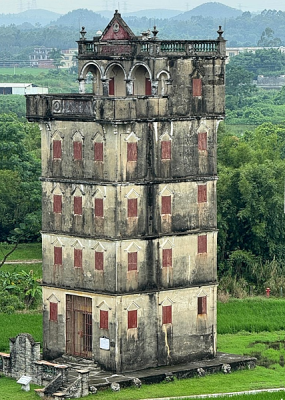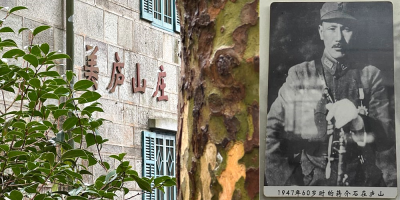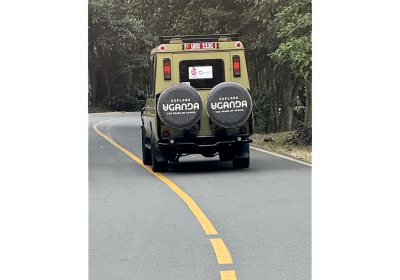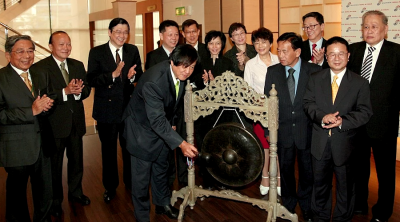Bordering the Mediterranean, Tunisia was founded by the Berbers over 3,000 years ago.
In 1 BC, the powerful Romans started to reign over this land for the next 500 years. Today, there are countless relics from the ancient Roman empire along the Mediterranean coast opposite Italy, most notably the massive Roman baths and the majestic amphitheatre, attesting to the grandeur and unrivalled prosperity of Tunisia back in those days.
It is said that a country richly endowed with fertile land and enviable geographic location would be pursued by other major powers. So, I really have no idea whether this is a blessing, or a curse!
Beginning 670 AD, Tunisia was eventually assimilated by the Arabs. And in the 17th century, the country was invaded by the Ottomans until the French arrived and occupied the whole of Tunisia from neighbouring Algeria in 1881.
For the subsequent 75 years, Tunisia became a French colony. As modern Tunisians would grumble: those arrogant Frenchmen did nothing for the good of Tunisia!
Many say the nations of our world today have been the result of splitting of older states after the second world war, while new states were formed after being granted independence by their colonial masters.
In 1956, Tunisians celebrated their independence in high spirits. Nevertheless, what they never expected was that having been delivered out of one pit of despair, they would soon be pushed down yet another seemingly bottomless pit of endless desperation by the two tyrannical presidents who took turns to ransack the country and plunder it’s wealth for 55 long years!
It is therefore not hard to imagine how the Tunisians spent 2,000 years struggling on their tortuous nation-building journey. That said, young Tunisians today can no longer endure such darkness and despair, and are more ardently fighting for their rights.
Their country is too backward and this is the time for them to rise up and lift up their heads to live a more dignified life. Wait a minute! Does that imply that something major is going to happen soon?
Early 2011, when Japan was brought to its knees by the March 11 monster earthquake and tsunami, I was with the travel buddies halfway across the world in Peru’s Machu Picchu. Back then the entire world wept with the Japanese for the tragic disaster.
However, in Tunisia, the people were indulged in jovial celebration for the great success of their Jasmine Revolution that which to the ousting of president Zine El Abidine Ben Ali who had ruled for 23 years. Ben Ali subsequently fled to Saudi Arabia where he died soon after.
The Tunisians took pride in the fact that this rare democratic movement in the Arab world was started by brothers and sisters passing messages through the Internet before it spread like wildfire across the whole Arab world, forming what was later known as the Arab Spring which culminated in the ouster of six presidents! Tunisia was then made a role model of democracy by the world!
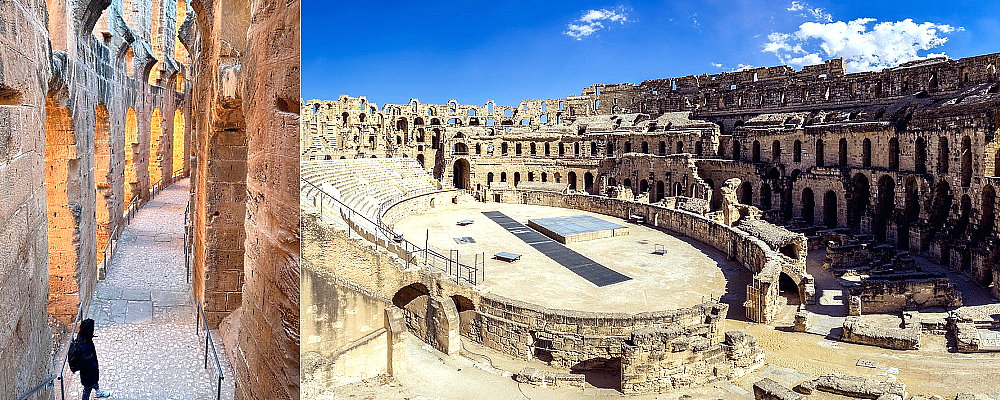
Today, even as the Jasmine Revolution (also the Arab Spring) is already 12 years behind us, many Tunisians are still asking the question whether true democratic politics has descended on their country and, more importantly, whether the people are enjoying better lives today. The answers were unveiled on January 14 this year.
By right the presidency is only a symbolic office, but the incumbent Tunisian president not only abolished the parliamentary system, he also stripped the prime minister’s office in an attempt to bring back dictatorship. Once again Tunisia was plunged into a new round of political turmoil and dilemma.
On this day, Avenue Habib Bourguiba in central Tunis witnessed yet another massive street protest calling for the president to step down from office.
On January 29, we Malaysian travellers were lucky to have witnessed Tunisia’s parliamentary election which nevertheless set a record low voter turnout of only 7.8%! Foreigners like us could feel a powerful undercurrent that could very well herald another momentous change in the country’s politics.
As a matter of fact, of the five sovereign states in North Africa, Algeria is known for its rich natural resources while Tunisia boasts a pleasant weather, affordable prices, rich historical and cultural heritage, as well as a relatively moderate and accommodating Sunni Islamic society.
No wonder the whole social ambience there feels so much more civilised, liberal and progressive!
As if that’s not enough, the country also boasts its own red wine which is really good and cheap! At the same time, alcoholic beverage is also served at five-star hotels and restaurants, not to mention casinos for foreigners in two major cities (temporarily closed at this moment).
The guide told us: Only the politicians are power-crazy. Their greed and corruption have sent the country to hell. Nevertheless, the people are really friendly and hospitable and our cities are safe and peaceful.
I have to admit that I agree with him!
Well, let’s follow the footsteps of Taiwanese writer Sanmao’s The Stories of Sahara, putting up a freezing night inside a tent in the middle of the Sahara, counting the stars above and eating instant noodle while enjoying the unparalleled “One Thousand and One Nights” hospitality for an unusual Tunisian desert experience!
After leaving the Sahara, we headed to the country’s second largest coastal city Hammamet. We were stunned by the large swathes of olive plantations on both sides of the new expressway. As a matter of fact, olives and dates are the country’s major export crops, and Tunisia is the world’s fourth largest olive producer!
I curiously asked our guide: We could see these few days that tourist facilities in the country are quite well developed, but why are there so few tourists at major sightseeing destinations?
The guide replied helplessly: Tunisia used to be a primary tourist destination for Middle East and Western tourists before the Jasmine Revolution. We used to have over a million tourist arrivals each year. After the revolution, the Westerners stayed away, but the good thing is, the Asians have come in to fill the vacuum. Because of the pandemic and political uncertainty, we only have about 200,000 tourists now.
Indeed, during our nine-day, eight-night stay there, we almost had the whole hotels, restaurants and sightseeing spots to ourselves, every day! But this also illustrates a point that this is indeed an excellent time to visit Tunisia!
Due to the strict foreign exchange control of the country, visitors can only bring in not more than US$1,600 cash into Tunisia, and declaration is mandatory. Credit cards can only be used at international hotels.
Therefore, while Tunisia might not make a perfect shopping destination, it definitely promises endless cultural and historical discoveries!
(Lee San is Founder and Group Executive Chairman of Apple Vacations. He has travelled to 132 countries, six continents, and enjoys sharing his travel stories and insights. He has also authored five books.)
ADVERTISEMENT
ADVERTISEMENT






